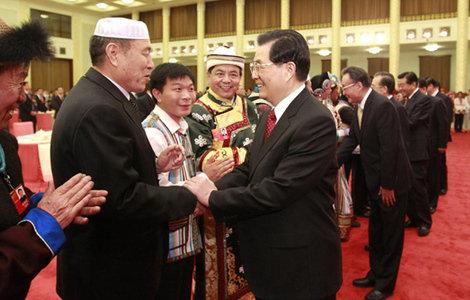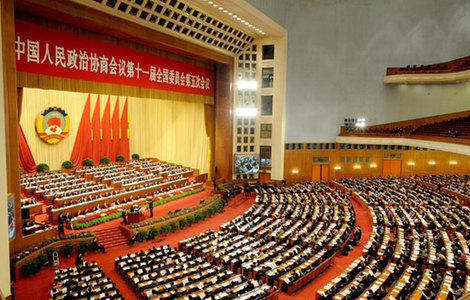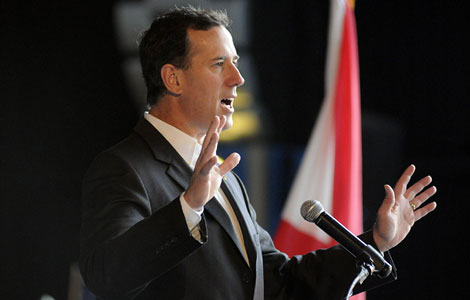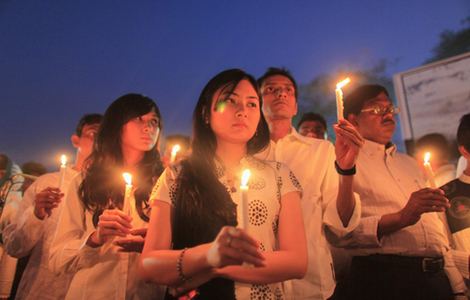 |
|
|
|
|||||||||||
One of the targets of government attention is Sandu County in Guizhou province. In 2011, its impoverished population increased to 193,000. The county offered assistance to all those whose annual income fell below the 2011 per capita poverty line of 2,300 yuan ($365).
Zhang Jiachun, head of the Sandu County government, said assisting the impoverished people in his county is a big challenge, but this year's government proposals give him hope.
"Premier Wen Jiabao's government work report talked about regularizing the development of small-scale financial institutions, of creating sound systems to assist small and micro-enterprises and rural development. We feel extremely encouraged," Zhang said.
In the last few years, more and more rural migrants have returned to the countryside to set up businesses. After learning new skills in developed coastal areas and expanding their vision, they have used government support not just to create their own businesses but also to help create jobs in rural areas.
"When I was on an inspection tour, I met a farmer in Sandu County. He only had a primary school education. He worked in a hair salon in Kunshan near Shanghai for five years then returned to his hometown planning to open a hair salon," Zhang said.
"He only had 20,000 yuan in savings. Later, he got a small government loan and opened a hair salon in the county seat. He hired several employees. Because his skills were good, his business was doing well after a year or so," Zhang said.
Other deputies support the government's role in helping to spark economic development in poorer areas.
"The imbalance between regions can't just be resolved through the workings of the market. Using the 'visible hand' of the government to provide coordination is appropriate. Any country would act this way, otherwise the country can't be stable," said Yang Fugang, an NPC deputy and head of the Tianjin Municipal Bureau of Finance.
According to the Ministry of Finance, the central fiscal is planning to allocate about 1.38 trillion yuan (about $222 billion) for education, health care, the social security system, employment services, housing support and cultural development this year, up 19.8 percent from last year.
In addition, the government is planning to spend about 1.51 trillion yuan on irrigation and drainage, public transportation, energy-saving and environmental protection, and community affairs. All in all, more transfer payments will be made this year from the central government to local governments than before in order to reduce regional imbalances.
"The government should provide coordination. It should redistribute funds. It should pay attention to eradicating income unfairness and excessive inequality," said Chen Qitao, Party chief of Bengbu, Anhui province and an NPC deputy.
"Managing the balance in society is a test of every level of government," Chen said. "It's like playing cards. Whether you win or lose depends on how you play your hand."
Wu Ying, iPad, Jeremy Lin, Valentine's Day, Real Name, Whitney Houston, Syria,Iranian issue, Sanyan tourism, Giving birth in Hong Kong, Cadmium spill, housing policy

|

|

|

|

|

|